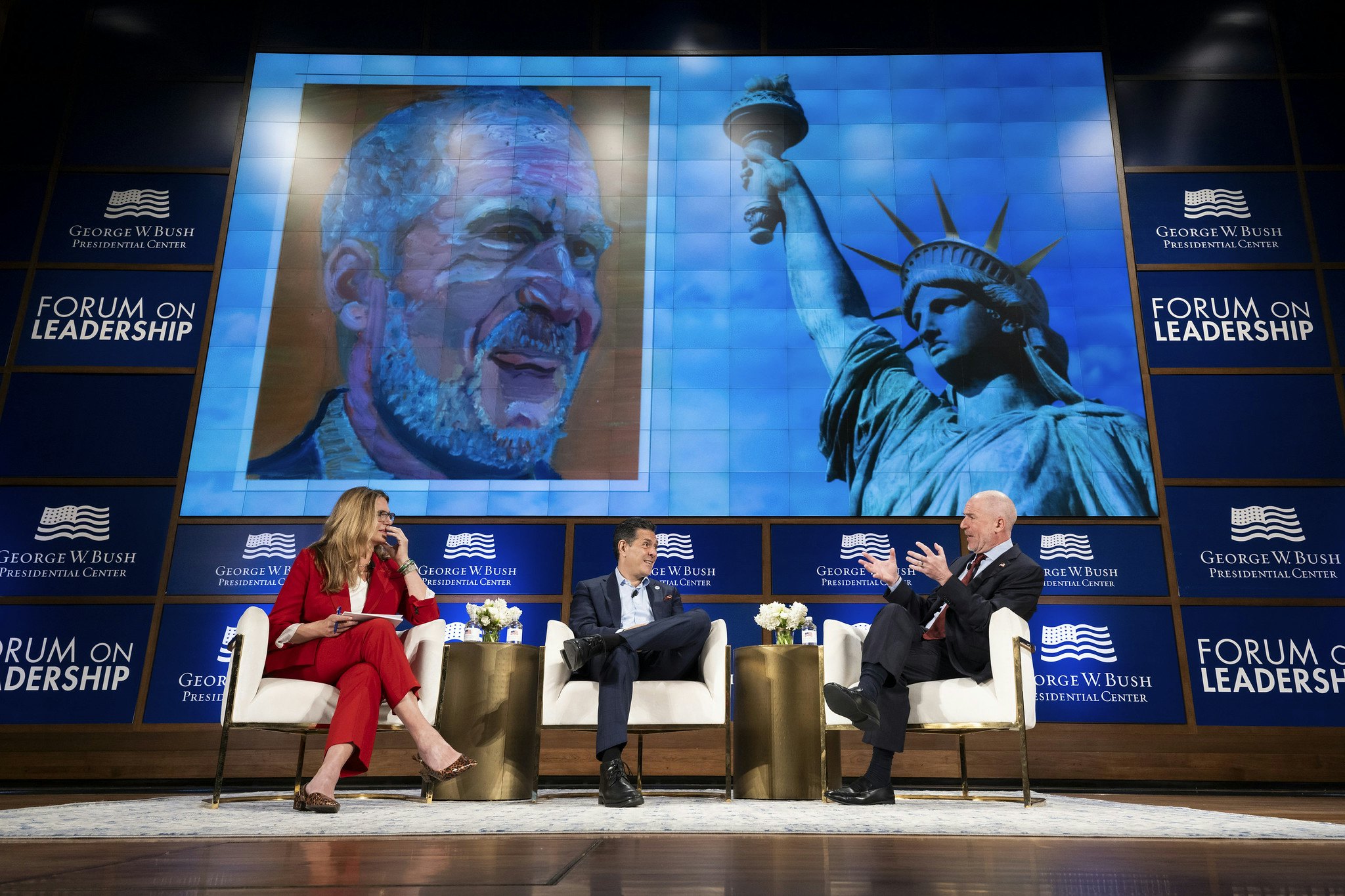Don Evans, former U.S. Secretary of Commerce, spoke recently with the Bush Institute about the need for America to compete with the world economically. Now the Chairman of the Board of the George W. Bush Foundation, Evans explains how the global economy has changed over the last 40 years and why isolationism is not the answer to our economic challenges.
How do leaders make the case for an economic strategy that engages the world when they are facing headwinds that turn people away from international trade and global markets?
You have to look at what has been happening around the world since World War II. Since then, the big economic engine was the United States. We had such a powerful economy that we were able to launch the Marshall Plan and help rebuild Germany and Europe. We showed the world that this is a compassionate country that will reach out to others around the world and support them.
As we moved through the ‘50s, ‘60s, and into the ‘70s, there were only 35 free market economies in the world by the mid-1970s. They had roughly 400 million workers.
Coming out of the mid-1970s, other economies, China included, started to experiment with a market-type economy. That happened in the early 1980s. What else happened in the ‘80s? The Cold War ended. The Berlin Wall came down. That showed we are about tearing down walls, not building walls.
Soon, even more countries moved toward a market-based economy. Now, we have over 100 market-based economies with billions of workers in them. Ninety-five percent of the world lives outside the borders of America. By far, they are in a competitive, market economy.
Everyone around the world wants the same thing. They want a job so they can put a roof over their family’s head. They want to educate their children. And they want to keep their families safe and secure.
The world now is connected technologically through computers and the Internet. Our borders used to be connected by airport terminals. You would fly from one country, get off in a terminal, and be in another country. Now we are connected by computer terminals.
So the world is getting more connected and will continue to get more inter-connected every day. More commerce and trade will be conducted through the Internet and technology.
When you have commerce with other countries, you communicate with them. The more you communicate with those around the world, the greater understanding you have with each other. That leads to respect for each other, which should lead to friendships and working together through joint ventures and partnerships.
So, commerce and trade is one of the ways we move the world toward peace, prosperity, and freedom. Not only is there a powerful economic reason to pursue commerce and trade, there are powerful geo-political and diplomatic reasons to do so.
But how do leaders who believe in an opening and welcoming society make that case when there are a lot of people who prefer a more isolationist course?
It is hard to do in a sound bite. You have to sit down with them and explain how integrated the global economy really is. The television set you buy probably has products from many countries around the world. You just can’t get away from how integrated the global the economy is becoming.
We need to be honest with ourselves, too. We were the world’s economic power in 1975, but now we compete with the world. Competition has gone from being basically isolated here in America to competing globally.
We were the world’s economic power in 1975, but now we compete with the world. Competition has gone from being basically isolated here in America to competing globally.
At the center of America’s economic strength has been our nation’s risk-taking and competitive spirit. Competition leads to innovation, which leads to high productivity, which leads to economic growth, which results in a higher standard of living. If we lose our competitive spirit, we will lose our position as the economic power of the world and from that our leadership role in the world.
If we don’t accept that, and decide not to participate and compete in the global economy, we are going to fall behind. I think this country will decay.
One of our strengths is our ability to compete. Everybody wants a level playing-field. Everybody wants fair trade agreements. There will always be discussion around that. We can debate whether there is a level playing-field, or whether we could have been tougher on certain issues. But that we should become isolationist and retreat from global competition is just not being intellectually honest and is a defeatist mentality. Nor is it being wise about the nation’s long-term interests.
Isolationism may sound good to some right now because our economy is struggling. Too many people are not advancing like they should be. But free trade and global competition are not the reasons our economy is not as strong as it should be.
Isolationism may sound good to some right now because our economy is struggling. Too many people are not advancing like they should be. But free trade and global competition are not the reasons our economy is not as strong as it should be.
We have to look at the structure of our economy and what we need to fix with respect to fiscal and monetary policies, infrastructure issues, entitlement reforms, and put excellence back in our education system.
There is a lot to work on here in the United States that can get us back to a growth rate of three-plus percent or four percent. Our struggle and frustration comes out of the anemic growth that we have been experiencing in America for the last, at least, eight years.






























